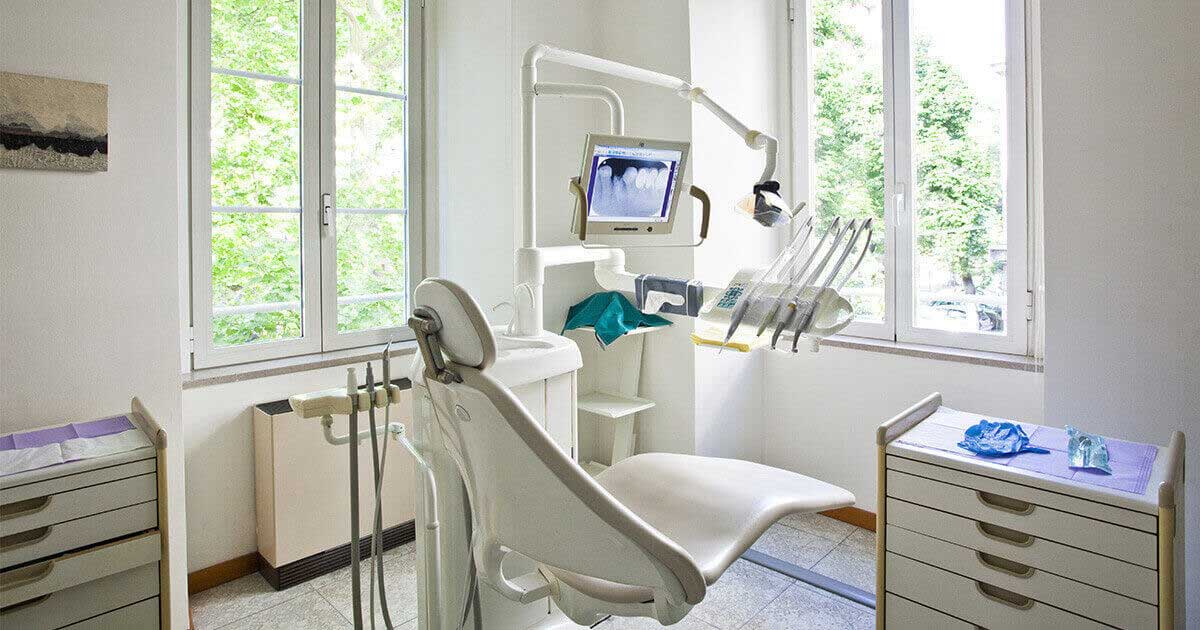Retiring and selling your dental practice is one of the most significant events in a dentist’s career. You only have one chance to get it right – so be prepared.
The average retirement lasts 6,470 days. For these Autumn days to be successful, equal amounts of personal and practice planning are required.
In this article, we give you tips to prepare for your dental practice sale in 5 years. Let’s start with the easy category first.
Preparing for Your Dental Practice Sale in 5 Years
Retiring and selling your dental practice is one of the most significant events in a dentist’s career. You only have one chance to get it right – so be prepared.
The average retirement lasts 6,470 days. For these Autumn days to be successful, equal amounts of personal and practice planning are required.
In this article, we give you tips to prepare for your dental practice sale in 5 years. Let’s start with the easy category first.
Preparing Your Dental Practice Sale
Prepare for your dental practice sale, maximize dental practice value, and ensure a smooth transition with these strategies:
Increase the Dental Practice’s Value
My typical practice sells for $600,000 – $1,000,000. This can be a significant part of your retirement financial planning.
To maximize the dental practice value in the next five years, maintaining or growing your collection dollars is critical.

Reduce Time Spent at Your Dental Practice
However, you may also want to reduce your time in the practice, which can negatively impact the value of a dental practice.
Many of my sellers are working three to three and one-half days per week when they retire. Their annual collections are usually level or increasing.
How is this done? By getting staff involved in creative ways to maximize patient flow and decrease expenses.
If their time in the practice is decreased, but their wages are not, then you will have staff loyalty on your side. Recharging your hygiene program is one easy way to accomplish this. My typical seller’s hygiene, x-ray, and patient exam production is 30-50% of collections.
Evaluate Your Cash Flow
Your cash flow out of the practice is even more important, especially for dental lenders. Try to clean up your Profit & Loss Statements by curtailing personal preference items.
For example, you may be taking your family and staff on Hawaii junkets and intermixing home and office supplies, but lenders look askance at such items. These can be adjusted with “Pro Forma” income statements, but they can raise a red flag with lenders.
Update your fees every six months. Buyers do not want a low-fee practice.
Clean up your past due Accounts Receivable. If the AR is over one to one and one-half months of collections, this is again a red flag for buyers and lenders.
Know the Time Frame of the Dental Practice Sale
Your practice location can determine the time it will take to sell. Urban and suburban locations in middle to large-population cities will usually sell within a few months of listing. For rural areas and small towns, this can be one to two years.
Get a Dental Practice Appraisal
For most practices, I recommend getting a dental practice appraisal from two to five years before the sale. A comprehensive appraisal will list areas for improving value, and this can give you time to make changes.
Valuing a dental practice will also help your financial planner. Once I appraised a specialty practice, found a buyer, and then the seller’s financial consultant said the seller could not afford to sell yet. I had to start the same process two years later!
If your timing is five years out, and you are thinking of selling to a DSO (Dental Service Organization), now is the time to start. They usually require the seller to work back for two to five years after the sale.
Be careful though, the fine print in your sale contract can be deadly (and expensive). An attorney and a practice broker are necessary to help you navigate these turbulent waters.
Consider Improving the Office’s Appearance Before the Dental Practice Sale
Investing in your practice appearance can increase value and marketability even more than new equipment purchases.
I have personally appraised over 2,500 practices. As soon as I have walked in the front door and seen the reception area, I can usually determine the annual collections and estimated value of the practice. Sometimes I get fooled, but that often means that the practice is more successful than my initial estimate.
So, initial impressions, especially by buyers and new patients, are important to dental practice growth and buyer acceptance.
Also, clean up the dental practice – patients and buyers expect an aseptic and decluttered appearance.
What to Consider if You Have a Dental Office Lease
If you are leasing office space, maintain a friendly relationship with your landlord.
Lenders usually require a five-year lease plus a renewal option for the buyer. In most cases a new lease will be written for the buyer, rather than assuming your remaining lease.
Try not to lock yourself into a lease that will be longer than your retirement timeframe. For me, the most likely impediment to a successful and timely dental practice sale is landlord intransigence.
If you own your building, plan on leasing it to the buyer for the first five years.
Incorporate a “Right of First Refusal or Option to Buy” in the lease. Most buyers are afraid of going bankrupt when they buy the practice, and adding a building loan on top of the practice loan can really scare them off.
As with the interior of the building, make sure the outer appearance and landscaping are positive and updated.
Preparing Yourself for Retirement After a Successful Dental Practice Sale
Now for the hard part – preparing emotionally for retirement.
 Based on life expectancy, the average dentist retirement lasts about 6,470 days. This could be about 30,000 hours of golf.
Based on life expectancy, the average dentist retirement lasts about 6,470 days. This could be about 30,000 hours of golf.
However, if you are looking for a more exciting last one-third of your life, then more planning is required.
The best advice I have heard is that it is best to retire to something in the future, not from the past.
This true story may scare you, but it explains a lot about making the retirement decision. This dentist decided to retire early, in his mid-50’s. He had a very successful practice, many hobbies, and numerous physical activities. He couldn’t wait to spend more time on them. The next morning after selling his practice, he woke up but was frozen in terms of deciding what to do. At that moment, he knew retirement was a mistake. He spent the next two months trying to buy his practice back. To entice the buyer to sell it back to him, he increased the sell price by $100,000. It worked. On his first day back in the office, the staff fondly greeted him and gave him his coffee. He went to his office, sat down, and then realized he didn’t want to be there! Two years later, after seeing a therapist, he sold his practice the second time and had a very successful life after practice. The previous buyer used the extra $100,000 to get his MBA and left dentistry for a career in marketing.
The British journalist, Malcolm Muggeridge, once observed: “Few men of action have been able to make a graceful exit at the appropriate time.” How do you know when it is time to retire? Is there an internal body clock with a “retirement alarm” that suddenly goes off, alerting you that today is the day for this fateful event?
Why is it considered “normal” to retire at age 65? We can thank the Germans, specifically the 19th Century Chancellor Otto von Bismarck. In 1881, when he was inventing his pension system, he arbitrarily set the age for retirement at 65. At that time, very few people lived that long. When Social Security started in 1934, full benefits were fixed at age 65. The architect of Social Security at that time, Robert Myers, explained: “Sixty was too young and 70 was too old. So, we split the difference.” In 2023, the average life expectancy for American women was 81 years and for men 77 years. In 1934, life expectancy for women was 63 and men 59. Thus, longevity and retirement age have no correlation.
Your spouse or partner must also be involved in the retirement decision. Their lives may already be independent of your status as a dentist. They may also question what you are going to do with your life if you retire, and its impact on them. During a dinner with an appraisal client and his wife in New England, I asked him what he was going to do in retirement. Suddenly his wife almost jumped out of her chair. “Yes, I want to know what you are going to do!” He quietly responded that he would be tending his blueberry crop. She exclaimed, “What do you mean by that. They are dormant six months out of the year!”
At another dinner with a retiring dentist client and his wife, I again asked that question. This time his spouse cut into the conversation. “Yes, I want to know what you are going to do. I am not your dental assistant, and I will not make you lunch every day. I eat randomly during the day. I married you for life, but not for lunch.” After that response I quit asking the question!
Key Takeaways on Retiring from a Dental Practice
Being a dentist is a high-status profession. To retire successfully, your identity must be secure. It must be grounded in who you are, not what you are.
There is a trick to the graceful exit. It begins with the vision to recognize when a job, a life state, a relationship is over – and then letting it go. It means leaving what is over without denying its validity or its past importance to your life. It involves a sense of future, a belief that every exit line is an entry point – that we are moving on, rather than out.
Thinking About Retiring Soon? Contact us and we’ll be happy to guide you through the dental practice sale.
About the Author
Gary Schaub, the owner of HELP Appraisals & Sales Inc. has over 30 years worth of experience in healthcare and dental practice appraisals, sales, and transitions. Gary Schaub is also a member and Chairman of the National Practice Valuation Study Group, and has conducted numerous seminars and lectures for various national dental societies. Gary has even conducted four Table Clinic presentations at American Dental Association meetings.
LinkedIn



 Based on life expectancy, the average dentist retirement lasts about 6,470 days. This could be about 30,000 hours of golf.
Based on life expectancy, the average dentist retirement lasts about 6,470 days. This could be about 30,000 hours of golf.